On November 23, 2022, the Green Lancang-Mekong Initiative: Towards COP15--Senior-level Roundtable Dialogue on Integrated Ecosystem Management (IEM) in the Lancang-Mekong Region (the Dialogue) was held as part of the 5th anniversary series of the Lancang-Mekong Environmental Cooperation Center (LMEC) in online and offline form. The Dialogue was guided by the Ministry of Ecology and Environment of China (MEE), co-organized by LMEC / Foreign Environmental Cooperation Center of MEE (FECO) and the United Nations Environment Programme (UNEP) Regional Office for Asia and the Pacific, and supported by the UNEP International Ecosystem Management Partnership (UNEP-IEMP). Representatives from MEE and local departments of ecology and environment, departments of natural resources and environment of Lancang-Mekong countries, UN agencies, international organizations, research institutes, enterprises and other institutions participated in the Dialogue.
The views of the speakers are excerpted below.
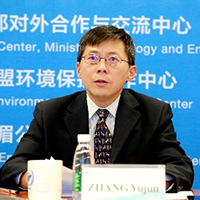 Zhang Yujun
Zhang Yujun
Director-general of LMEC / FECO
LMEC is an important player in Lancang-Mekong Cooperation which is a pioneering area for the Global Development Initiative (GDI) and aims for creating a "golden model" for regional cooperation. Since its establishment in 2017, LMEC has made significant achievements in promoting regional cooperation in the fields of ecology, environment and climate change. In the future, LMEC will continue to better coordinate with the Lancang-Mekong countries to develop a new
Lancang-Mekong Environmental Cooperation Strategy Framework, and work together to build a Langcang-Mekong pioneering GDI area, provide Lancang-Mekong solutions for building a clean, beautiful and prosperous Asia-Pacific, and help the region achieve the UN Sustainable Development Goals (SDGs).
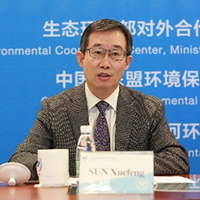 Sun Xuefeng
Sun Xuefeng
Deputy Director-general of the Department of International Cooperation, MEE
The Chinese government has always taken the lead in building ecological civilization, prioritized ecological protection, conserved resources while using them efficiently, and pursued green and low-carbon development. Over the past decade, the Chinese government has placed ecological protection in an important position in building ecological civilization, and has achieved remarkable results in the fields of biodiversity conservation and ecosystem management. In the future, China will hold hands with the Lancang-Mekong countries to further deepen good neighborliness and practical cooperation, share ideas and experiences in the areas of regional ecosystem management, biodiversity conservation, addressing climate change and enhancing sustainable livelihoods, and jointly promote the implementation of the 2030 Agenda for Sustainable Development in the region.
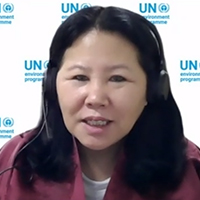 Dechen Tsering
Dechen Tsering
Director of UNEP Regional Office for Asia and the Pacific
IEM is an important solution to ecosystem sustainable development, which helps balance the competing human needs with the long-term sustainability of ecosystems and is an important mechanism for addressing biodiversity loss, climate change and environmental pollution in the future. UNEP is committed to supporting the IEM application expansion in the Lancang-Mekong Region, promoting regional and cross-sectoral cooperation to maximize synergies and promote harmonious coexistence of humanity and nature and the SDGs achievement.
 Zhang Linxiu
Zhang Linxiu
Director of UNEP-IEMP
IEM for Sustainable Livelihoods within the Framework of Lancang-Mekong Cooperation project has been implemented efficiently and effectively, and the experience and suggestions shared by all of you are very useful for our project team. UNEP-IEMP has been working on projects in the Lancang-Mekong Region, and sustainable management of livelihood-based ecosystem is a topic of great interest to our project team. With the UN Decade on Ecosystem Restoration initiative and the
Post-2020 Global Biodiversity Framework to be adopted at the 15th Conference of the Parties to the UN Convention on Biological Diversity, our regional cooperation will become increasingly valuable. In the future, I hope we will continue to strengthen our cooperation in the Lancang-Mekong Region and contribute to the implementation of the UN Decade on Ecosystem Restoration initiative and the
Post-2020 Global Biodiversity Framework.
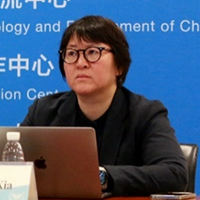 Li Xia
Li Xia
Director of LMEC / FECO
IEM for Sustainable Livelihoods within the Framework of Lancang-Mekong Cooperation project has made positive progress and laid a very good foundation for the next project design and in-depth cooperation. The issue of sustainable livelihoods in agricultural communities is actually concerned with economic, social and climate equity, and is also a response to United Nations Framework Convention on Climate Change (UNFCCC COP27). In the future, FECO will continue its multi-dimensional cooperation with the UNEP and other agencies on topics such as climate investment and financing, energy security for small farming communities, and climate adaptation communities, and hope to form a good linkage with African cooperation. We believe that the results and experiences achieved will be of good value and dissemination to other developing regions.
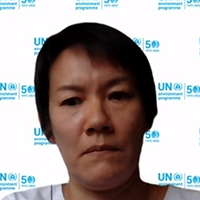 Ms. Makiko Yashiro
Ms. Makiko Yashiro
Regional Coordinator for Ecosystem Management Sub-programme UNEP Regional Office for Asia and the Pacific
IEM for Sustainable Livelihoods within the Framework of Lancang-Mekong Cooperation project, developed by UNEP and implemented by the LMEC and the UNEP-IEMP with support from the UN-China Trust Fund, has achieved positive progress and results. The project has assessed the ecological and economic benefits of agroforestry plantations and livelihood improvement of local communities through the integrated management pilot and capacity building activities of ecosystem in Phnom Kulen National Park in Siem Reap of Cambodia and Prefecture of Xishuangbanna in Yunnan Province of China, and has raised awareness of sustainable management of environment-friendly agroforestry ecosystems. The project has achieved the expected results. We hope to "expand" or "replicate" this project to other Lancang-Mekong countries or regions to benefit more communities through the dissemination of results and experiences.
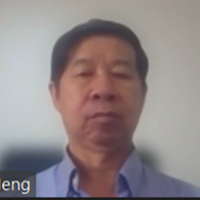 Mr. Meng Monyrak
Mr. Meng Monyrak
Deputy Director General, General Directorial of Policies and Strategy, Ministry of Environment, Cambodia
Cambodia has conducted a number of pioneering IEM projects in recent years. IEM for Sustainable Livelihoods within the Framework of Lancang-Mekong Cooperation project was piloted in Phnom Kulen National Park in Siem Reap Province, focusing on integrated cultivation of black ginger and cashews, organic vegetable cultivation and other interventions as the main form of agroforestry. During the piloting process, the Cambodian government actively invited various organizations and institutions to participate in the projects, conducted several capacity building and cross-sectoral communication workshops, and provided support to the piloting process in terms of national strategic policies and cross-sectoral cooperation, which facilitated the exchange of experiences and summaries between local communities and the government, as well as explored feasible solutions for the future promotion of sustainable cashew cultivation in the region. To continue promoting IEM actions for livelihood in the future, we need to fully assess the use and conservation situation between local communities and protected areas, and fully consider the needs of various stakeholders to strive for coherence among sectors to effectively achieve sustainable replication.
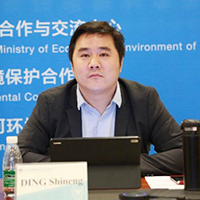 Ding Shi Neng
Ding Shi Neng
Deputy Director of LMEC / FECO
China has always insisted on the harmonious coexistence of humanity and nature, and the use of nature-based solutions to promote ecosystem conservation and restoration has been a key element of China's ecological conservation efforts. China has made much progress in habitat and species conservation, sustainable ecosystem management, promoting community participation in conservation actions and livelihood enhancement and in promoting multi-stakeholder participation from local governments, the private sector and the public. However, the promotion of nature-based solutions still needs to rely on a value chain approach to develop markets and introduce financial tools to protect farmers' incomes and promote more stable and sustainable partnerships with the private sector. UN agencies have carried out rich work in the field of ecosystem restoration, and in the future, China is willing to continue to work with UN agencies to promote cooperation in ecosystem protection and restoration practices, guided by the concept of harmonious coexistence of humanity and nature.
 Ms. Thaw Thaw Han
Ms. Thaw Thaw Han
Director of Environmental Conservation Department, Ministry of Natural Resources and Environmental Conservation, Myanmar
Myanmar is facing serious challenges of biodiversity loss and ecosystem degradation due to agricultural over-cultivation, fire deforestation and logging. In recent years, Myanmar has taken several conservation actions. At the regional level, Myanmar actively participates in cooperation with the
Convention on Biological Diversity, Conservation and Sustainable Management of Peatlands and
Sustainable Agroforestry Management. At domestic level, Myanmar has banned illegal commercial logging and deforestation to reduce man-made damage to the ecosystem. The Myanmar government has also incorporated climate change into its environmental and natural resources-related policies and laws to improve the climate resilience of the ecosystem. In the future, Myanmar is willing to actively participate in ecosystem conservation cooperation in the Lancang-Mekong Region, and hopes to work with all parties to develop more abundant outstanding demonstration cooperation and experience exchange and sharing.
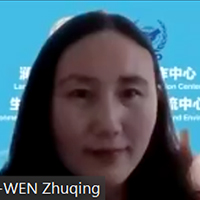 Wen Zhuqing
Wen Zhuqing
Associate Research Fellow of LMEC / FECO
Constrained by cultivation conditions, more than 70% of the world's natural rubber is currently produced in Southeast Asia. Although natural rubber cultivation might improve farmers' income, increase employment opportunities and promote local economic and social development, the ecological and environmental problems caused cannot be ignored. In order to guarantee the production of natural rubber and minimize its negative impact on the ecological environment, the concept of environment-friendly rubber forests has been proposed and beneficially practiced. As one of the implementing agencies of IEM for Sustainable Livelihoods within the Framework of Lancang-Mekong Cooperation project, FECO has selected three pilot projects in the Prefecture of Xishuangbanna of Yunnan Province, to demonstrate the construction of environment-friendly rubber forests, conducted five capacity building activities, produced four policy briefs, and actively promoted local stakeholders to enhance their awareness and capacity to build environment-friendly rubber forests, which has achieved positive results.
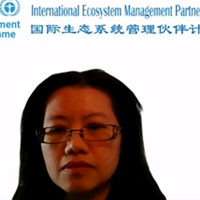 Ms. Tatirose Vijitpan
Ms. Tatirose Vijitpan
Focal Point of Greater Mekong Sub-region Portfolio, UNEP-IEMP
UNEP-IEMP is actively promoting the integration of knowledge products under the project of IEM for Sustainable Livelihoods within the Framework of Lancang-Mekong Cooperation, and has completed five knowledge products, mainly related to ecosystem assessment for sustainable livelihoods, financial mechanisms, regional good practices and local / traditional knowledge, landscape management tools and programs. The aim is to collect, analyze and disseminate a knowledge base of good practices, knowledge, tools and financial mechanisms on IEM related to livelihoods in the Lancang-Mekong Region at transboundary, national and local levels for practitioners and policy makers to enhance knowledge on ecosystem management values, promote integrated management of critical ecosystems and transboundary landscapes, and facilitate South-South knowledge sharing.
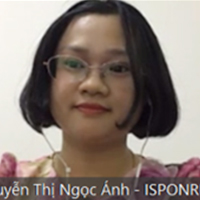 Ms. Nguyen Thi Ngoc Anh
Ms. Nguyen Thi Ngoc Anh
Officer, Division of Science and International Cooperation, Institute of Strategy and Policy on Natural Resources and Environment, Ministry of Natural Resources and Environment, Viet Nam
In recent years, Vietnam has carried out rich cooperation in natural capital accounting and development, including studies related to natural capital accounting under the framework of the Greater Mekong Sub-regional Cooperation, and joint studies with the World Bank on the development of Vietnam's Roadmap for National Natural Capital Development, which has played an important leading role in promoting the development of the regional blue economy as well as financing IEM and conservation actions. The pilot activities carried out by China and UNEP in the Lancang-Mekong Region are important demonstrations, and the sharing of relevant practical experiences is important to promote the further expansion of pilot activities in the region. In the future, we hope to see more exchanges, cooperation and joint research among Lancang-Mekong countries, and Vietnam is willing to share its practical and research experience in natural capital accounting with all parties.
 Ms. Juanita Chaves
Ms. Juanita Chaves
Senior Programme Officer, UNEP-WCMC
The National Ecosystem Assessment (NEA) Initiative supports countries in conducting scientific assessments of the drivers and impacts of changes in biodiversity and ecosystem services, and synthesizing the information to support policymakers in policy development. NEA work under the IPBES platform begins with the development of project scoping reports that go beyond biodiversity and ecosystem-human relationships to include inter-species and inter-planetary, nature-human effects. The NEA Initiative has now developed their own national ecosystem assessment frameworks in 12 countries, including Vietnam, Cambodia and Thailand, and is supporting capacity building, knowledge sharing and exchange activities at national level.
 Ms. Rebeca Leonard
Ms. Rebeca Leonard
Consultant for The Economics of Ecosystems and Biodiversity (TEEB) at UNEP
The Economics of Ecosystems and Biodiversity (TEEB) project aims to achieve SDGs and the trade-offs between achieving the SDGs. In the rice sector, for example, the natural, social, economic and environmental impacts are analyzed in a comprehensive manner. TEEB's specific practice in the Lancang-Mekong Region is to conduct organic rice cultivation jointly with the Faculty of Economics of Khon Kaen University in Thailand, relying on scenarios such as “the Thai Program for the Promotion of Organic Rice Production”, Thai Parliament achieving the 2030 Agenda for Sustainable Agriculture and the bio-cycle and green economy models to assess the social and environmental impacts of the government's implementation of related policies. The results show that the larger the area is planted with organic rice, the higher the net benefits, taking into account production, environmental and health factors. The short-term impact on rice production can be offset by price, and organic rice cultivation can help reduce greenhouse gas emissions and increase biodiversity in rice fields.
 Mr. George Scott
Mr. George Scott
Senior Land Use Business Analytics Specialist at UNEP
Bank financing plays an important role in the trade of forest products and bears an irreplaceable responsibility for large-scale deforestation, but also faces many unknown risks. The Sustainable Finance Forum aims to support the development of sustainable forest finance activities with three pillars, namely sustainable risk management based on banks, banking associations and technical support, expanding sustainable finance by governments, banks/banking associations and technical support, and capital matching for banks, institutional investors, sustainable forestry companies, and emerging fund managers to develop sustainable finance-related projects.
 Du Hongxia
Du Hongxia
Senior Programme manager, World Wild Fund for Nature Beijing Office
There is currently a huge funding gap to build global resilience, with at least $3.3 trillion required annually to meet the investment needs to achieve the SDGs. WWF's Bankable Nature Solutions (BNS) program is designed to create positive environmental benefits and thereby have a positive impact on biodiversity and climate change or mitigation. Based on different factors such as region and area, the project collected and compiled 13 cases around the world, mainly located in the southern part of the planet, which are also the most vulnerable to climate change and ecological degradation. BNS is a typical hybrid model that requires a combination of factors ranging from the scale of investment, project preparation and implementation cycle, the investor, as well as the environmental, economic and social benefits.
 Zhang Huichun
Zhang Huichun
Project manager of China Chamber of Commerce of Metals, Minerals & Chemicals Importers & Exporters (CCCMC)
Natural rubber and mining sustainability is a key sustainable area, focusing on standard setting, capacity building and concrete project implementation. The Sustainable Natural Rubber Project was implemented in 2014 to promote sustainable development concepts in the global natural rubber value chain through specific measures such as capacity building and sustainable improvement of rubber plantations. Specifically, the
Guidance for Sustainable Natural Rubber was developed for large-scale planting of natural rubber forests, and the
Manual for Smallholder Natural Rubber Sustainable Development Technology and Implementation Reference Manual were developed to further promote the sustainable development of the natural rubber industry.

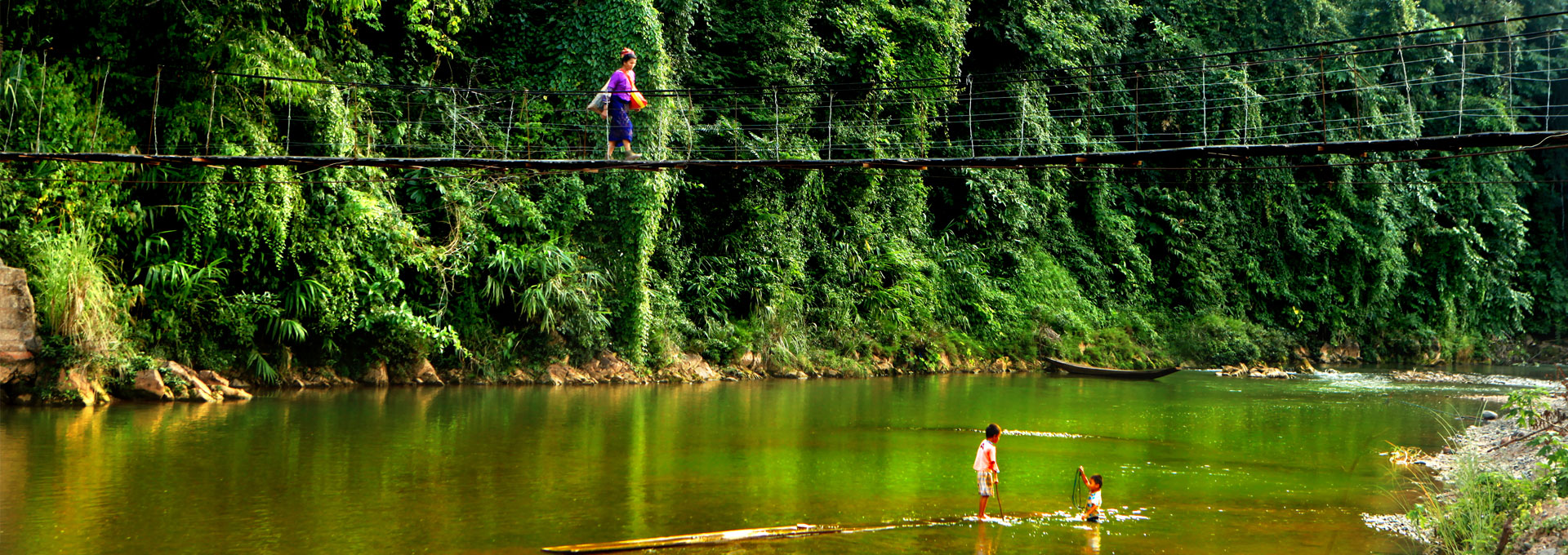

 Zhang Yujun
Zhang Yujun Sun Xuefeng
Sun Xuefeng Dechen Tsering
Dechen Tsering Zhang Linxiu
Zhang Linxiu Li Xia
Li Xia Ms. Makiko Yashiro
Ms. Makiko Yashiro Mr. Meng Monyrak
Mr. Meng Monyrak Ding Shi Neng
Ding Shi Neng Ms. Thaw Thaw Han
Ms. Thaw Thaw Han Wen Zhuqing
Wen Zhuqing Ms. Tatirose Vijitpan
Ms. Tatirose Vijitpan Ms. Nguyen Thi Ngoc Anh
Ms. Nguyen Thi Ngoc Anh Ms. Juanita Chaves
Ms. Juanita Chaves Ms. Rebeca Leonard
Ms. Rebeca Leonard Mr. George Scott
Mr. George Scott Du Hongxia
Du Hongxia Zhang Huichun
Zhang Huichun